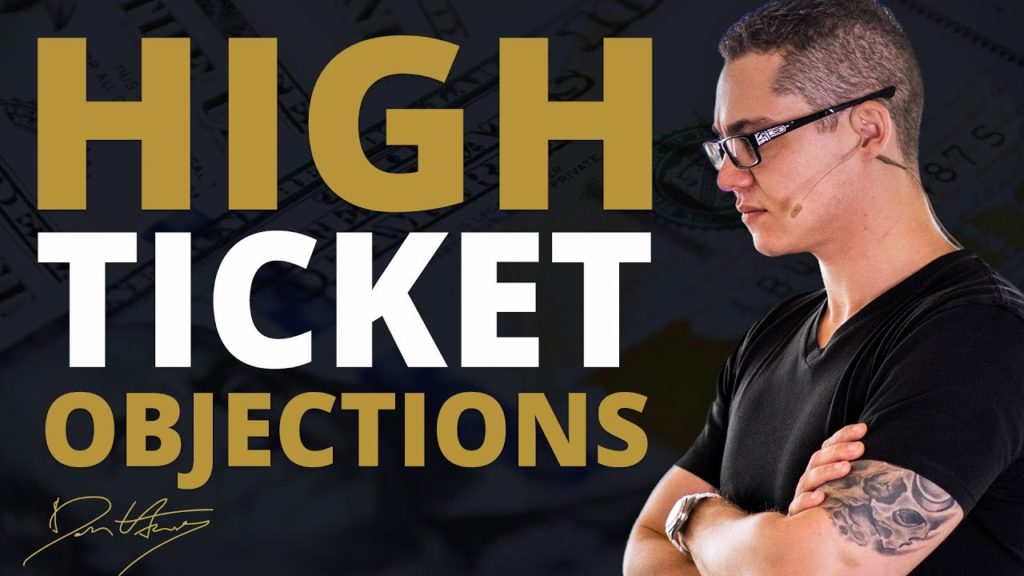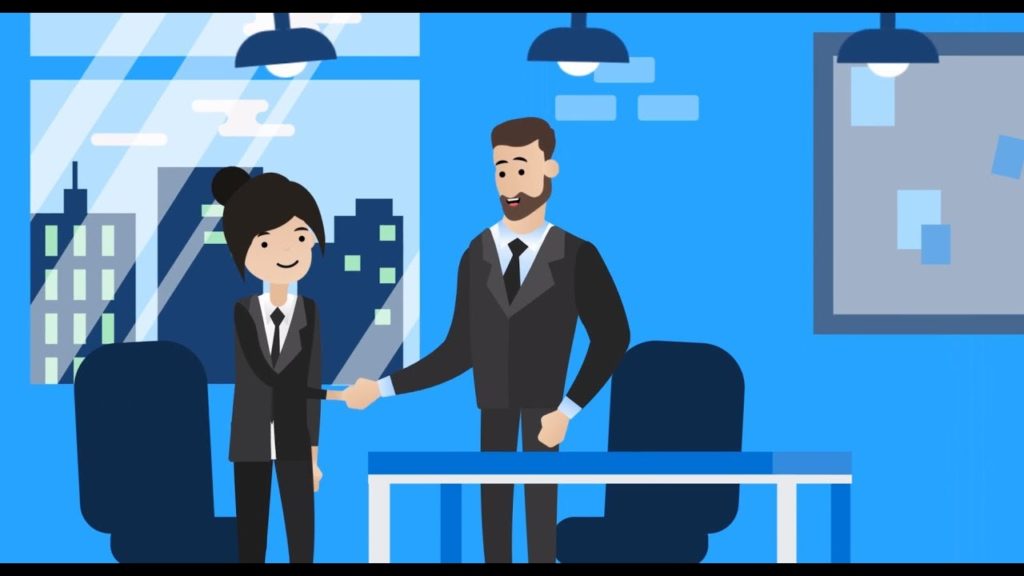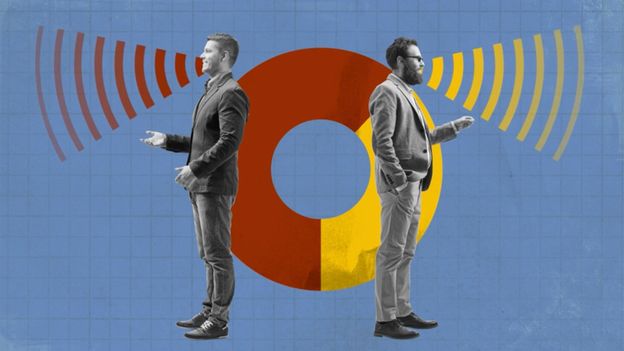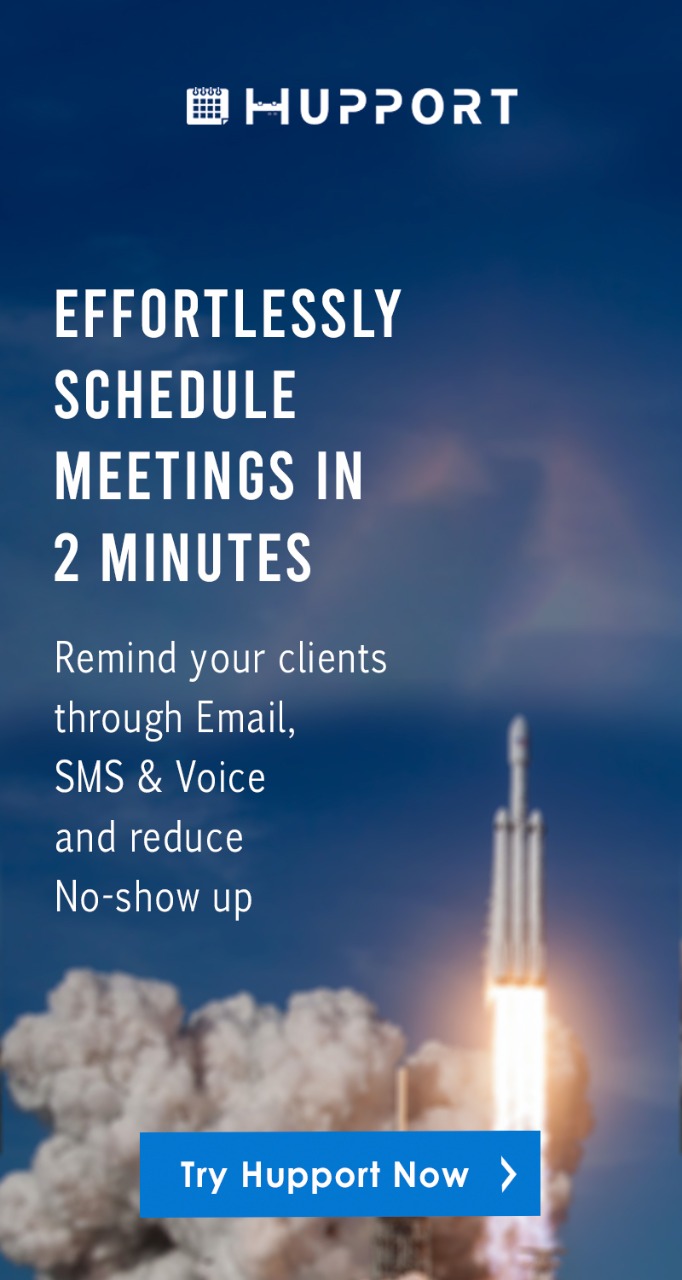Here We Discussed about High-ticket closing course and Reviews ( Dan Lok )
Daily Meditation Exercises
-
Attitude of Gratitude

Take a moment every day to be grateful for what you have & what you are. Your job, your house, the ability to walk, the ability to breathe. You cannot be fearful, angry, nervous when you’re grateful. It is important to remember what you are grateful for multiple times a day everyday.
-
Millionaire Mindset Affirmations
These millionaire mindset affirmations during a state of deep meditation will help with conquering insecurities in your professional life as well as get you in the correct mind state to take the steps towards wealth.
-
Wealth Abundance Affirmations
These abundance affirmations will get you in the correct mindstate to not only attract wealth abundance, but also know that you can deal with this abundance & that you’re willing to do what is needed to obtain it.
The Mindset of a High Ticket Closer

- One of the key traits of a HTC is that they’re resourceful. If they do not know something, they know how to find the information.
- It’s important to not take advice from people that are not in your field or in the position that you want to be in. That includes family, close friends or even teachers if they are not suitable to give advice.
- Money is measured more in time than in wealth.
- Making large sums of money fast is not bad, evil, shady or dishonest. The art of making money is a noble art.
- Being a high ticket closer means you cannot feel guilt when making large sums of money quickly.
- If you’re working hard at something, might as well develop the skills needed to make a lot of money in that field.
- Financial freedom is not doing nothing, it’s not the ability to do whatever you want. It’s the ability of not having to do something that you don’t want to do. The ability to say no to people, things, circumstances you don’t like. Freedom means you do not have to tolerate it.
- You cannot always count on someone else to help you, but you can always count on your skills & abilities to get you through anything. That is why it’s so important to develop those skills as much as you can.
- You do not solve your debt problems by saving, you solve your debt problems by increasing your income. A penny saved is not a penny earned, it’s just a penny.
- If you’re struggling with money, you do not have a debt problem you have an income problem. An income problem means you have a skill problem, because you have not developed a high income skill.
- Your peer’s success does not take away from your success. Being successful depends on how each & every person uses their skills. Often times your success means your peer’s success & vice versa.
- The biggest determining factor for your accomplishment is not how many hours your train, not how hard you train, but WHO trains you.
- Rule #1 – No excuses. An excuse is nothing more than a well planned lie. As a high ticket closer, if you don’t know something you can figure it out. You cannot be an HTC if you cannot be resourceful & self sufficient.
- Rule #2 – Do not offer an opinion to someone who is more experienced & knowledgeable than you. Chances are, your opinion is most likely incorrect.Rules #3 – No Victims. No blame, no pointing fingers. Take responsibility in your actions.
5 Reasons Why People Fail to Create Wealth in their Lives

There’s a difference between interest & commitment. When you’re interested in something you only do it when it’s convenient. However, when you’re committed to something you do it without excuses; you do whatever it takes.
-
Wealth killer #1 – Lack of commitment:
A real commitment is a commitment with a formal structure. Commitment is one of the most important steps to take in this process, because it will not be easy & you will not always find it convenient to practice.
-
Wealth killer #2 – Lack of focus
If you have a plan b (especially if you also have a plan c) you are not focusing on your plan a succeeding. You’re fulfilling a self written prophecy that your first plan with no work. You fail before you even begin.
“Rich people do what’s hard, that’s why their life is easy. Poor people do what’s easy, that’s why their life is hard” – Dan Lok.
“The secret to wealth is committing to one idea over time” – Dan Lok.
-
Wealth killer #3 – Lack of implementation
A regular person will overestimate their ability to consistently go to the gym for example. A person who does not lack implementation will acknowledge their lack of will power & will implement systems to almost force them to do something & hold themselves accountable through external means.
-
Wealth killer #4 – Lack of mentorship
It’s okay to ask questions, but make sure they are intelligent questions that will bring you closer to your goals, or will help in mastering your skills.
“If you could reach your goals on your own, you would’ve done it already”
-
Wealth killer #5 – Lack of guidance & support
Guidance from your mentor & support from your family. It’s important for these people to believe in your & not add obstacles into your journey to becoming a high ticket closer. Invite them to know more information about what you’re doing & what journey you just took on.
Assignments/Homework
-
Create a vision board

Make a collage using cut out pictures from magazines/posters. What is the first thing you would like to get with your high income skill? Clarity is power.
-
Write a letter to yourself
Explain to yourself what and why you want exactly. Describe your high income expectations in dollar amounts. You need to use this letter to close yourself on why you must succeed & why you need this. If you cannot close yourself how can you close others?
-
Expose the lies
In order to turn your vision into Grab a pencil & paper. Write down all the lies you tell yourself. Write the lie & skip four lines. Then use a red pen & write the truth.
○ Ex. Lie: I am shy & I really don’t know how to talk to people.
○ Truth: I just haven’t learned how to communicate with confidence & conviction. I know with practice, I could talk to anyone anytime with confidence.
○ In between the lie & the truth, you will have four spaces where you will need to begin transitioning the lie into the truth.
○ Ex. Lie: Money is the root of all evil.
○ Maybe it’s not always true, sometimes you can use money for evil
○ Maybe money is just an amplifier of personality
○ Truth: The lack of money is the true root of all evil. With more money, I can do good for myself, my family & the world.
○ At the beginning of each class until the course is finished, you will need to go over these lies & slowly begin to erase the lies until only the truth is visible.
-
Immerse Yourself Into Sifu’s (master Dan) Teaching
Binge watch all of his youtube videos, especially those about closing. At least 10 videos per day. “The purpose of learning is mastery, not memorization”
-
Learn From Other HTC Students
Watch recordings of HTC courses. Ask yourself how they close, what their habits are, what their best practices are.
-
Reprogram Your Mind For Wealth
Start every morning with the attitude of gratitude video. Gratitude = wealth. Midday watch Millionaire Mindset – Power Affirmations. Before you go to bed watch Program Your Subconscious Mind for Success & Wealth.
Closing Masterclass with Sophorn Pin

- Through repetition & practice, you can achieve even the unthinkable whether it be physically, mentally or emotionally. The iceman is an example. A man who can withstand extreme cold conditions through repeatedly exposing himself to those conditions.
- How did the guest speaker, Sophorn Pin, manage to make time to become a high ticket closer. Her main response is that she made the choice to commit to becoming a high ticket closer. This led to her doing whatever it took to become an HTC. She had the goal of being added to Sifu’s HTC team on her vision board a year before the webinar.
- The difference between knowledge & skill. Knowledge is information that you acquire. Skill is the proper application of said knowledge. Converting what you learned into what you do. Convert the knowledge into a behavior. A habit takes about 60 days to change.
- Changing a behavior is not about intensity, it’s about consistency. If you constantly do an hour each day over a long period of time, you will see more results than doing 8 hours a day for a short amount of time.
- The brain needs time to really acknowledge the information you have learned, days off are very important a week to avoid information overload, which may lead to loss of information retention.
- Roleplaying & practicing is a great way to become a high ticket closer and develop your skills.
- Apply your high ticket closer skills into the real world. Take into consideration how you act, how you react, and what feedback you receive from the real world.
- How do we master this skill? Practice, get the right coaching & be consistent. Be patient, this skill takes a very long time to fully develop. Take pride in what you’re doing. Have thoughtfulness in your craft.
- How do we know when we’ve achieved mastery? You know you’ve achieved mastery when the opportunities that come to you are abundant.
- “The bridge between knowledge and skill is practice. The bridge between skill and mastery is time.”
The Advanced Human Psychology of High Ticket Sales

- Leader vs saviour. You can lead people into success & wealth, but you cannot save somebody who does not want to be saved & is not willing to be lead. Accepting leadership is voluntary, trying to save somebody is forcefully trying to help them.
- You cannot give from a place of lack & scarcity.
- You can only give from a place of abundance.
- Sometimes in life you have to be incredibly selfish so you can be incredibly generous.
- Save yourself first, then you can save others.
Secret #1 The Law of Clarity
- The clearer you are about your goals and objectives,the more efficient & effective you will be at achieving them
- Your ability and your willingness to be completely realistic in your life & work are among the most important qualities of successful closers.
- Your vision board is not your inspiration board.
Secret #2 The Law of Realism
- High ticket closers deal with the world as it is, not as they wish it would be.
- Never trust that with luck or hope something unexpected will turn up to solve a problem or save a situation. You are in charge of the deal.
Secret #3 The Law of Focus
- What you focus on expands. Your goals are always there, but when you actually focus on them intensely they will appear more.
- Do not focus on what you cannot change. No matter how much time you dedicate to it, it will not change in your favor. For example, gas prices. If you cannot change those prices, no point in complaining about them.
5 big problems you run into when you are not charging enough
- Lousy customer experience. You cannot afford to provide a superior experience.
- Clients get minimum results. It takes time to get results.
- Clients do not respect or value you. They may not show up or do the work correctly.
- Need a lot of clients to make ends meet. Since the income from each client is low.
- You must grow slowly because you are forced to spend the bare minimum in attracting and acquiring ideal customers.
The Hidden Psychology of Premium Pricing
- The more people pay, the better they appreciate what they have.
- When your clients invest top dollar, they will help you make sure it has been a valuable investment.
- Positive expectations lead to a positive outcome
- They will help you justify the price! Then they will refer you to others like them. ● It’s a never-ending positive cycle.
- If you charge too little for your services/product, you will induce doubt in the customer. The example Dan Lok gave is when he went to his friend’s hair salon. The friend charged too little for a haircut & Dan began doubting the decision he made by going in the shop.
- Negative expectations lead to a negative outcome.
- No matter how good the product or service turns out to be, the customer will convince themselves that it is a negative experience.
Secret #4 Inner Game of Money – Outer Game of Money

- When dealing with high ticket sales, you cannot look at price without looking inward as well as outward.
- If a client is not buying it is something you are doing.
- If a client is resistant, it’s something you’re doing.
- Money making is not a serious business, it is a game that you play. At first it may seem that it’s a game that is played with forces outside of yourself – the economics of the marketplace, so to speak – but as you proceed you discover that it is actually a game you play with yourself.
- When it comes to price you will project your past & present experiences. This will lead to you projecting it onto your clients. Some of these practices are not healthy & will prevent you from going to the next level.
- Most people rarely buy things based on function.
- If you ask yourself “Who in the world would pay $x for that?!”, you’re projecting your value onto other people. Just because you won’t spend that money on it doesn’t mean someone else wont.
- Your value judgement does not matter, only the client’s value judgement matters! ● Get out of your own way when closing high ticket sales.
- All price resistance is in the mind of the closer, not of the client.
Secret #5 Fix Your Thinking & Remove Money Obstacles
Wealth trigger
- Something in your environment, an object or other, that triggers your desire for wealth.
- Simple changes in your environment can trigger your desire for wealth. ● Something Sifu does is leave cash in his drawer to constantly have the image of his money.
- Having cash in your wallet lets you know that not only do you have money, but you also trust yourself enough to know you won’t lose it.
- We operate based on the principle of slight edge. If doing this gives me a slight edge, I will do it.
- Your inner world creates your outer world.
Secret #6 Lower Self vs Higher Self
Lower Self
- The lower self is the creative center of our negative attitudes & feelings towards yourself & others, arising of our egocentric separateness from the totality of life. ○ It is our defense against pain, out numbness to feeling, out disconnection from ourselves & from other people.
- It is the negativity we act out as a result of numbness.
- Comes to conclusions quickly without doing any research or fact checking. ○ Feels pain, helplessness, rage, denial, withdrawal.
- Wants 100% perfection & wants it its way.
- Blames life about all their downfalls.
- Feels like the world is out to get it.
- Sets impossible standards to uphold, setting itself up for failure.
- Blocks pain by freezing feelings. Numb. “It’s just the way it is”
- Wrong conclusions such as “I’m not enough, I don’t matter, I’m not worthy”
Higher Self
- This is the self that is the highest expression of your personality. It is the self that knows you can create anything you want.
- We have both the lower self & higher self present at all times, but we tend to listen to our lower self more often.
- If you notice yourself getting worried, stuck, disappointed, frustrated, scared, ask yourself: “Is this my higher self talking or is it my lower self?”
- As soon as you catch your lower self beginning to take over your consciousness, you need to shut it down before it gets to an uncontrollable level
- Don’t give your lower self any power whatsoever.
Closing Masterclass: Kristen Hinkson
- Whether you’re ready or not, tell yourself to jump in.
- The higher you get, the more you have to focus on others. When we begin, we focus on ourselves & our emotions. When we work with others, you can have external help in difficult situations.
- Be true to yourself, if you’re passionate about something go for it. Don’t sacrifice anything, just have fun.
- You can let go of some things, but you don’t have to lose yourself all at once.
The Gem Personality Types

- It’s not about what you do it’s about how you do it – your body expressions, your facial expressions, your confidence.
- It doesn’t matter how people respond to you, it’s about what you project onto others.
- There are 4 personality types: Ruby, Sapphire, Pearl, Emerald.
When Connecting
-
Ruby
Be confident. Compliment them with authenticity. Tell them success stories. They fear losing control. Ask more “Why” type questions to dig deeper.
-
Sapphire
Be upbeat and approachable. Keep it simple and positive. Ask about them and listen (let them talk). Focus on the motivators. Ask more “Why” type questions to dig deeper.
-
Pearl
Share your caring/ nurturing side. Speak a little softer. Be attentive, calm, patient. Try to relate to them. Ask more “Why” type questions to dig deeper.
-
Emerald
Be professional. Respect their time, be punctual. Be systematic and specific. Explain the process. Aim to get the facts first by asking “Why” type questions.
When Closing
-
Ruby
Keep the process moving. Continue putting their goals in front of them. Ask them for their opinion and ideas (they love this) and validate them. Be results oriented. Just say, “I don’t think so, you can’t do that.”
-
Sapphire
Keep it simple. Create a clear, positive vision for them. Maintain a casual and light conversation. If you talk to them about being on top and winning, they don’t care – you’ve lost them.
-
Pearl
Tell them upfront that you support them regardless of their decision. Show them how it will help them or their families. Listen to them.
-
Emerald
Tackle their concerns. Emeralds need time to think and make a decision. Support / give stuff to read. Show them how this will save them money. Show them validation of product/service. Talk about how it makes sense. Don’t fake your knowledge.
How to Close $3,000 – $50,000 Sales with One Phone Call
The Crabs in a Bucket Story: Fishermen don’t put a lid on the captured crabs because as soon as the other crabs see one trying to escape, they pull them down & keep them in the pot with them.
The Crab Mentality
- If I can’t have it, neither can you.
- If I can’t do it, neither can you.
- If I can’t achieve more, neither can you.
- If I can’t be successful, neither can you.
- If I can’t break free from the system, neither can you.
What do you do when you are in a bucket full of crabs:
- Those who do manage to climb out of the bucket find the ocean & their freedom again.
- There’s no traffic at the top, there’s only traffic at the bottom of the bucket. ○ Ignore the crabs you have in your life.
- Recognize who they are – even if they are the people you love the most, and ignore them.
- They may think they have the best intentions – thinking they are doing good by trying to protect you from failure, but in fact they are holding you back from success.
- Failure is part of success. You cannot get to success without failure.
- Most people are playing not to lose, rather than to win.
- We’re not trying to avoid making mistakes, we’re trying to learn how to be comfortable with making mistakes.
- There are two kinds of people in the world. Those who live inside the matrix & those who live outside the matrix.
- The closer you are to your breakthrough, the more negative people around you will react.
- Many people have “poor genes”. Their relatives have been poor & they will project those failures onto you whenever you attempt to get out of poverty.
- You have let perfection hold you back from your goals.
- You have let the fear of failure hold you back from your goals.
- We are always students of closing. Learning all the time & never saying we know it all.
Secret #7 – Make Money on Your Own Terms

- It’s not about how much money you make, it’s about how you make that money
- Before you even climb the ladder, make sure the ladder is leaning against the right wall.
- Hard work in the wrong field will end in your wasting your time & feeling worse than you did before.
- Why do people have clients from hell? Because they pay you so you tolerate their behaviour.
- Just because someone gives you money, it doesn’t make you their little b*tch. You are a professional, a problem solver. Your client has a problem & you have a resolution.
- Your client gives you money for the resolution you provide for their problem.
- If a client does not give you the money they keep their problems. It’s a fair exchange, a resolution to their problem for money.
- The mentality you need to have when approaching a closing phone call is that it’s not necessary for them to pay. If they don’t pay they keep their problem.
- In life you don’t get what you need or desire, you get what you tolerate & accept.
- The reason your income is low, it’s because the people around you feel like a low income is acceptable.
- People are overweight because they find it acceptable. You may say it’s not, but the actions prove otherwise.
- Be careful with how much you tolerate, you’re teaching people how to treat you.
- I am wealthy because I don’t have many things or people in my life that I have to tolerate. True wealth is living on your own terms.
Secret #8 – Closing = Wealth

- If you don’t talk to strangers on a regular basis, you’re broke.
- The amount of money you’ll make is in direct proportion to how many strangers you talk to every day.
- It’s important to teach our kids to talk to strangers from a young age. If they want something like a toy, they need to be selling lemonade & speaking to strangers
- Plant the seed in the mind of your child that talking to strangers is necessary in life.
- The master key to unlock more sales is to turn strangers into friends, friends into clients, and clients into raving fans.
Secret #9 – Your network creates your net worth
- Whenever two strangers meet, it doesn’t matter that they’re strangers if the have a common interest in business.
- Being a lone wolf or operating in silos will definitely diminish your possibilities when it comes to increasing your income.
- Who are you friends right now? Who do you talk to on a regular basis? Show me your friends & I will show you your future.
- It’s important to network with everyone you meet in a business sense, you never know when an opportunity comes around where you need someone or when a mutual interest can be exercised.
Secret #10 – Pattern Interrupt Your Prospects
- The word salesman comes with negative connotations. People may think of you as sleazy, a liar, untrustworthy, overly excited, a thief, fake, etc.
- If you child asks to be a salesman rather than a lawyer or a doctor, do not shut down that idea. Encourage them by helping them develop their skills in the sales field.
- The reason why so many people are so bad at sales is because no one wants to be a salesperson. Through languaging & negative association, salespeople have been overlooked for other careers.
- What Dan does every day as a high-ticket closer:
- Sell services, programs & products everyday
- Sell high-ticket deals
- Sell the banks & owners of business
- Sell his students operating from their higher-self not their lower-self
- Sell his personal brand to the world
- Sell his team on the vision of the organization.
- In most of the professional services, you are not selling the expertise – because your expertise is assumed, and because your prospect cannot intelligently evaluate your expertise anyway.
- The most important thing is to never appear to your prospects as another sales person. ● If a salesperson naturally comes with negative association, we do not want to be put into that bunch.
- You will not close any high-ticket deals if you sound like any other salesperson, no matter how good you are at speaking or selling your product.
- You know you’re good when your prospect thanks you for closing – this means you provided a solution to their problem.
- People hate to be sold, but they love to buy. They want to know that they made that decision. You did not twist their arm to buy.
Pattern Interrupt
Not acting like, looking like, or resembling a stereotypical self-centered salesperson. Take control of the sales process within seconds of the conversation.
What do typical salespeople sound like?
- Talk too fast & enthusiastic too early, talk too robotic.
- Closing is all about power. Traditionally & logically, it’s the prospect who has the power. For closing to be easy & price to be irrelevant, the closer must take all the power away from the buyer.
- If you have no sales experience it’s even better because you don’t have bad habits already. It’s better to begin learning with the mindset of someone with zero sales experience & don’t consider themselves sales professionals because they are more open to new techniques.
Secret #11 – Don’t Sell, Ask Questions

- A high-ticket closer is a psychologist, actor, has power posture & tonality.
- When you ask a typical salesperson a question they want to have all the answers.
- A high ticket closer always answers a question with a question, remember to use a natural tone when asking a question.
- You must uncover your prospects needs & pain points before you share any information about yourself or what you sell.
- Your prospect thinks you’re gathering information, but you’re actually moving toward a decision on their end.
- The less you talk the more you close. The more you talk the more you sound like you’re trying to justify.
- High ticket closing is all about asking the right questions at the right time with the right tonality.
- If you’re missing one of the three rights mentioned above, you will lose the sale. For example; if you ask the right questions at the right time but with the wrong tonality, you will either miss the opportunity or you will scare them off.
Secret #12 – Master Your Tonality
- When it comes to communication it’s 55 percent body language, 38 percent tonality & only 7 percent actual words spoken.
- It’s not what you say it’s how you say it.
- When it comes to closing it’s 85 percent tonality & only 15 percent actual words spoken. ● Your tonality is your instrument for closing. If you don’t like the way you sound, or if you don’t like the way you sound on a recording, you need to work on your tonality. ● The better tonality you have & the better you sound on the phone, the more confidence you will have when closing.
- You need to practice to see your body language, your facial expressions & your tonality. To do this you need to make a video & correct anything you don’t like.
- As we finish something, we can finish the sentence with an upward voice intonation, an unchanged voice intonation or a downward / deeper voice intonation.
- To practice, say “You want to buy this” in all three intonations.
- There are three origins of speech. Speak from your throat, speak from your chest & speak from your diaphragm.
Secret #13 – No Pain No Sale
- People buy things because they have a present or future need that is causing them discomfort, aggravation & more.
- Prospects who have no passion, usually, have a lack of interest. They have no emotional investment, their needs are low or non-existent.
- People only buy things to escape existing or future agony. It’s only when their needs become so strong that they are willing to take action, be proactive & buy your products or services.
- The most excited positive prospect is the most dangerous. There is no pain point. They come in at a 10 & there is no way but down. If a person who is feeling like a 4 comes in, you can bring them up to a 8 and close.
- People invest where they hurt the most. They need to feel pain in the area they’ve identified as unsuccessful in their life.
- The closing call should not be a pleasant experience for your prospect.
- The minute you get on a call, immediately put your prospects on the grading scale from 1 – 10. 1 – 5 = low needs. 6 – 8 = some need and/or interest. 9 – 10 = high needs, passionate, urgency.
When the need is lower than a 5, always use reverse psychology
Give your client reasons to defend what you’re selling by mentioning that they seem to be more interested than you expected, or that you’re not sure whether a product or service is right for them. By giving a client a reason to defend what you’re selling ,they’ll craft their own argument about why they should close the sale. Essentially, you turn them into a salesperson.
Examples of Reverse Psychology in Closing
- You wouldn’t consider changing companies just to save 10%, would you? ○ It can’t be that urgent, can it?
- Even I could do ___, you don’t want to get started now, do you? Maybe 6 months from now?
- You wouldn’t be interested in that, would you?
- You are probably not comfortable spending that kind of money, are you?
Pain Discovery Questions
- Tell me more about…
- Can you be more specific? Give me an example.
- How long has that been a problem?
- What have you tried to do about that? And did that work?
- How much do you think that has cost you?
- How do you feel about that?
- Have you given up trying to deal with the problem?
Secret #14 – Ask Questions with Finesse
There is definitely a flow that an interaction with a prospect needs to follow:
1. Discovery Questions

- What is your biggest challenge at the moment?
- What were you hoping to get from me today?
- What was it that made you decide to invest the time to talk to me today? ○ How much do you know about ___?
- There have been a lot of changes in your industry over the last 5 years, what’s been the biggest shift from your perspective?
2. Close-Ended Questions
- Do you like this feature that our product provides?
- Were you satisfied with your last vendor?
- Will you be making a decision within any time soon?
- Is this kind of thing what you’re looking for?
3. Open-Ended Questions
- What would you like to see improved?
- How did you get involved in ___?
- What other issues are important to you?
- What’s changed since we last talked?
- What are your thoughts?
4. Clarifying Questions
- Could you please give me some background on this?
- How much is the problem costing you in time/money/resources/staff/energy? ○ Tell me more about ___
- Why do you think it’s happening?
- How serious would you say the problem is today?
- What kind of time frame are you working in to fix it?
5. Hypothetical Questions
- Just suppose…
- Let’s pretend for a moment ____, then would you…
- What if you could…
- Let’s say ____, then what’s going to happen next?
- If I could…
The 3 Magic Words – ESP
It reveals the gap from where they are & where they would like to go:
E – Exactly: Exactly what kind of results are you looking for?
S – Specifically: What specifically have you done in the past to try to generate more sales?
P – Precisely: Precisely what were you hoping to get from me today?
Secret #15 – Forget The Golden Rule
- Golden Rule: Do unto others what you want them to do unto you.
- Communication with others in the way they want to be communicated with.
- Make sure you communicate with your prospects in a way that matches their tonality, way of speaking, etc.
The High-Ticket Sales Intro
- Freedom is not free. It comes with a very hefty price.
- “Rich people do what is har, that’s why their life is easy. Poor people do what is easy, which is why their life is hard”
- It’s easy to waste time, not set goals, not be productive or proactive. This is why people are way too comfortable. With comfort, you will not receive happiness, joy, or progress.
- Freedom costs a lot of money, and maintaining freedom is even more expensive.
- Money gives you the freedom of choice & opportunity. It allows you to help those who you want to help financially.
- There is a big difference between working hard & working smart. This directly relates to high ticket sales, because you can make hundreds of phone calls for hours & not achieve results, but by working smart & identifying your buyer’s personality you can close a high ticket sale quicker & easier than any other sale.
Secret #16 – Don’t Try to do High Ticket Closing

- There is a difference even between the people attending the current course. It’s the same class, same technique, same teacher with wildly different results.
- If you see yourself as a smoker it’s very difficult to quit smoking. However, if you see yourself as a non-smoker, it will be effortless because you didn’t even want to smoke to begin with. This metaphor is directly related to this course, if you see yourself as a student trying to be a high ticket closer, you will struggle, it will be an uphill battle. If you see yourself as a closer expanding your knowledge, it will be near effortless.
- It’s one thing to say you are a high ticket closer, it’s another thing to be a high ticket closer.
- You will never outperform your internal self image.
- If you tried to expand your income by trying new things, such as drop shipping, it may not have worked because you never saw yourself as a dropshipper working in your field, you saw yourself as an accountant trying to make money with dropshipping. You will always revert back to your own self image.
- Confidence is not your internal self image. Internal self image goes way deeper than confidence or belief.
- The reason you will not become who you want to be is because you are too attached to the person who you have been.
- Do things & create habits of the people you want to become. If a high ticket closer constantly roleplays their scenarios, you will have to begin doing roleplays. You cannot be someone without adopting their habits.
- You need to be a millionaire before you have a million dollars in your bank account.
- It’s not about who you become during a high ticket closing call, it’s who you are in all situations. It’s not about reading the script, it’s about having the script tap into your true high ticket closer abilities & having it guide you to the close.
- Don’t downgrade your dreams to match your reality. Upgrade your skills to match your vision.
Secret #17 – Don’t Think in Money, Think in Commision
- Don’t think about anything you want to buy in dollar amounts, think about them as your commission. For example, if you make $1000 commission per high ticket sale, and you want to buy a $2000 item from your vision board, don’t think of you needing to save $2000, think about it as needing to close two high ticket deals.
- Average people think in terms of money, high ticket closers think in terms of commission.
- I can’t afford it. It’s not in my budget. It’s too expensive. If you find yourself saying these things, it’s because you’re attached to your current self image. You should be thinking about how many sales you need to make to buy what you want.
- If you don’t make the commissions you want to buy the things you want, hold yourself accountable & do more research to meet those sales goals you set for yourself.
- You don’t have an income problem, you will never have an income problem in your life. What you have is a skill problem. You may have skills, but they are not high income skills, they are low income skills. You cannot make a high income with low income skills.
- If your loved ones are telling you to not be so ambitious as to not get disappointed in failure, you should not feel discouraged at the lack of support.
- Your mind needs to be in a place where your vision is already realized. You just need your reality to catch up to your mind.
- Structure does not mean a higher net worth, more success or higher income goals, it means a solid high income skillset that will help your reality catch up to your mind quicker.
Secret #18 – Closing is not something you do TO a prospect, it is something that you do FOR a prospect

- A traditional sales person changes someone’s situation, a high ticket closer changes someone’s life.
- A sales pitch only allows someone to see their life through their current framework, which means that of course they will not be able to purchase everything. Our job is to remove this filter from the prospect & help them see their life through their future framework.
- You need to ask the correct questions & avoid projecting your own situation onto them in order for you to guide them to see their life through their future framework.
- As a high ticket closer, you need to promote, sell & close with confidence because you know that you know best for the prospect. You know what they need even before they know they need it.
- Generate hope in the prospect & guide them to see how this product or service will benefit them in their future. Create what if scenarios to help their mind step into the hypothetical framework.
- If you approach a prospect with a traditional sales pitch, they will only think in a way of survival.
- It is our role as a high ticket closer to help them imagine a bigger future, one filled with promise and purpose and growth and potential and contribution. This is the life that everyone wants to live. They settle for less because they have to find a way to “make a living” or “pay the bills”.
- As a high ticket closer we must take on the responsibility for helping our prospects imagine a life that they could never have imagined on their own. We must help our prospects dream their way out of their current circumstances. We must envision with them a new reality and a new world of possibility.
- When you can envision with a prospect & help them open their mind to new possibilities, you have become a high ticket closer. There’s nothing more noble on the planet.
Secret #19 – Master the High Ticket Closing Staircase
- High ticket is not about jumping around, being enthusiastic, memorizing scripts or trying obvious embarrassing gimmicks & techniques.
- High ticket closing is a combination of the science of human behaviour & finesse.
- High ticket closing is about connecting with your prospect on a deep level.
- When closing, you already know the outcome, you just need to follow the correct steps to guide the prospect to that outcome.
- Transparency & authenticity sells. Hiding your personal information, not having a photo of yourself will not enlist trust from your prospect. You would not give someone $10,000 with no profile picture.
- If you do not have extreme clarity on your prospect issues, there is absolutely no way you can have extreme clarity on a solution to those issues.
- When you’re on a phone call with a prospect, your insecurities are amplified & become very noticeable. If you are uncomfortable with selling to people with more income or net worth than you, it will be very apparent through your breathing, tonality, etc.
- There are three steps in this staircase; agenda step, qualify step & commitment step.
Step 1: Agenda Step
This step puts people at ease while putting you in control. It also sets you up for a decision, not a discussion. Most prospects come onto the call thinking they’re going to get more information. But you know it’s a one-call close. You want to know if they’re decisive, or if they’re just tire kickers looking to shop around.
This step is supposed to be a “two punch knockout”. The first punch is setting the appointment for the call. The second punch is the knockout punch, closing while on the phone call with the prospect.
Generic qualifying questions
- How did you hear about us?
- How did you hear about _____? (If you’re closing on an influencer) ○ What attracted you to ______? (Name or brand)
- What are you hoping to accomplish on this call today?
- How long have you been doing that/working there?
- The more questions you ask, the more in control you are.
Sample questions for the agenda step
- “Name, this is how the call wil go. First, I’m going to ask you some questions to find out if or how I can help you. Then I will tell you about what we’re doing… does that sound fair?”
- “I want to make sure we’re on the same page during our conversation today. How much did you set aside for us? And, remind me about the purpose of today’s meeting as you see it”.
- Do not answer questions. You always answer a question with a question. If the prospect is trying to take control of the conversation in the beginning, redirect! Use: “Well, why don’t you wait until the end to ask questions. And then at the end, just let me know if this speaks to you or not, how does that sound?”
Step 2: The Qualifying Step

Qualifying is always a balance act between leaving enough time to build rapport without waiting so long that you’ve wasted everyone’s time. Remember, the harder you qualify the easier it is to close.
Qualification comes in four parts
- Needs (Scale of 1 – 10)
- Money (Does the prospect truly have the money available to pay for the solution? Are they resourceful to find the money?)
- Decision Maker (Is the prospect actually the decision maker?)
- Time (Does the prospect want the solution within a reasonable span of time?)
- You will become a master at helping clients clarify what they want & you will gain revolutionary insights into the driving force behind why clients buy.
Clarifying Questions
- Get rid of the smoke & mirrors
- What would it take for you & I to do business today?
- What information do you need from me in order for us to move forward? ○ Let’s bottom-line this, what has to happen in order for us to do business today?
Step 3: Commitment Step
The easiest & shortest step due to the past two steps being done efficiently & effectively.
- Never ask for the sale because it’s better to receive than to beg!
- What would you like to do next?
- Where should we go from here?
- What would you like to do?
- Prospects lie. Don’t always believe what they say & take things literally. It is our job to get the actual information.
- People buy not because of what you sell, they buy because they feel underwood.
Secret #20 – Authoritative Posture & Presence

- Those with imposing presence, tone it down as to not intimidate prospects. There’s a fine line between being authoritative & doing too much. Give about a 7 on a scale of 1 – 10.
- Authority vs everyone else. Specialist vs generalist. Ask questions vs sell. Walk away power vs desperate for business. Inbound call vs cold calling. Speak with certainty vs uncertainty.
- When you call them, you’re the salesperson. When they call you, you are the expert.
- When a prospect emails you or PMs you, send them a booking link.
Secret #21 – The Power of Reverse Psychology
Reverse psychology statements
- It can’t be that urgent, can it?
- It’s not bad, is it?
- You don’t want to do this now, do you?
- (Describe their situations), what’s wrong with that?
- But you are probably not comfortable with that, are you?
- You don’t sound very excited about this.
- This may not be for you…
- We found that most people actually are not good fit for this program although they say they are…
- It’s very possible that this program is not…
- I don’t see how this program will benefit you…
- After bonding, they must feel their paint or they won’t buy.
- It’s normal to hear silence once the conversation is coming to an end.
- Ignorant – I don’t know. “I don’t know” redirect step will force prospects to give you more information.
- You are acting ignorant on purpose rather than babble with no direction.
- This is an advanced closing technique that very few sales people know. The salesperson is always supposed to know all the information.
- By acting ignorant, you get the prospect involved and you redirect the conversation so that all the pressure is where it belongs on the prospect!
High-Ticket Objection Handling

Rule #1 – Learn to Play With Resistance
We don’t handle resistance, we play with resistance.
Three things you will get out of a sales conversation
Yes: You get a sale, you get your commission.
No: You get your time back, you don’t waste more time.
Lesson: You learn meaning & one step closer to actually connecting with other prospects.
The only way you will fail in a high ticket sales call is by not doing the phone call to begin with. Whether you get a positive or negative response, you will get something out of it.
Can you prove that it will work for me?
“Can you prove to me that you will do the work? If you don’t think you’ll put in the time & the work, please don’t go through with this.” – This puts the responsibility on the prospect. We want to let them know that we are not desperate for their business or for this deal to go through, we are only interested in working with dedicated prospects.
Can you guarantee I will get the results you claim?
“I need to know what results you’re looking for specifically? Are those results directly related to your problem or are these results more of an umbrella?”. – Redirection & clarification.
It sounds too good to be true, this seems like a scam.
“Maybe it is a scam, there’s no reason to continue this conversation if that’s your concern.” – There is no point in trying to overly justify yourself, if the prospect has this idea of you, it will be difficult to get out of it.
Let me think about it…
“Before we end this conversation, many people say they want to think about it when they really mean to say no, is that the case here? Can I ask you one question, let’s say you don’t go through with this deal, what will you do to solve your issue?” – Let them know that if they don’t take our deal, they will need to take another deal because the problem that made them seek us out is still there. It’s better to go with us now than to let the problem linger & grow.
Let me talk to my wife/spouse
“When you go home & let her know you want to go through with this deal, what do you think she will say? Would that be her response even if this deal goes to make you six figures & you can buy them X product?” – Paint a picture in their head with their partner being happier if they took this deal, rather than waiting on it & not taking action now.
I don’t have the money
“Let’s say you had the money, would you go through with the deal?” – Give a scenario with someone who pays the amount you’re asking for, and someone who gets the information for free. Who will get more out of it?
Rule #2 – Grow Some B*lls
When you are on the phone, you cannot be afraid to be direct, firm or ask the qualifying questions necessary.
Why should we pay you so much? There are other companies who charge less:
“Why do you suppose we’re more expensive than other companies? I know a couple companies that charge a third of what we charge & I will be more than glad to refer you to them, but why is that an issue? Are you looking for the cheapest price, or is it more about the best results for you? What results are you looking for specifically?” – We do not need to justify, if we give too many reasons, we will seem insecure & like we’re trying to convince them that we are worthy of their money.
Why should we choose to work with you?

“That’s a very good question. Why do you want to work with us?” – Make sure to use the proper tonality. Be assertive, confident & put the responsibility of answering the question on the prospect. Let them justify their decision on their own. We are only meant to guide them.
I have done other courses from famous people like so and so, I committed 100% but did not work out, why will this program work for me?
“What did some of the other programs/courses cost you? Now you want to spend more money on courses,
why? What does your return on investment look like to you? How can we make sure that this time it will work for you?” – Ask qualifying & clarifying questions, get to the core reasons why they think the last courses did not solve their issue & ask them what they would have liked to have done differently for them to have a positive response.
If we can satisfy those requirements, we will proceed. If not, let them know they may be correct & that this course may not work for them.
Why do I have to buy this specifically while there are other options?
“What other options are you referring to? Company A, have you talked to them? Company B, have you talked to them? What do you think is different between them & us? Why do you think you weren’t satisfied with the conversations you had with them?” – Ask them why they didn’t go with the other companies yet & follow up on the responses they give you. Ask them if they have a better chance of getting better results with a better company (us).
Send me more information…
“Exactly what information are you looking for? Let me write this down, this sounds important. How many references are you looking for? Anything you want to ask them specifically? Suppose I can give you the information you’re looking for & you like what you see, what will happen? If I give you this information, when will you call them or get to that information? Can we schedule a time to talk tomorrow?” – The important thing here is to ask for specific information & let them know exactly who, what, where, when & how you will send them the information & let them know what will happen when you speak the next time.
It’s important to be assertive & to let them know that taking the time to get them this information is a big deal. It needs to be understood that money is not an issue & that asking for information is not a way to get out of the deal.
I need to take a look at my finances
“Why? I’m curious.” – The tonality is very important here. Do not be aggressive or sound bothered. Ask as if you’re just curious as
to what they need to look at their finances for, and why it’s something that needs to be looked at before making a decision.
What other clients have you worked for?
“That’s an interesting question, why do you ask? Who do you think we have worked with? People in your industry or outside of your industry? Who would you like to have seen that we worked with? (Once they give you a name, list relevant brands)” – It is important not to give names or try to justify who you
have worked for/with before you know what kind of brands they’re looking for you to list. If this prospect is your first client, ask them if they think we will work harder than anybody else. Ask them if they think we will give them our full attention. Be very transparent about this being your first client, if they are not comfortable with that, they won’t hire you anyway, so there is no reason to lie about it or try to hide it.
What’s the guarantee?
“Well what kind of guarantee are you looking for? Suppose we can give you a 30 day money back guarantee, what will happen? Is money an issue? Why did you call us in the first place? I cannot guarantee results, I can guarantee the work. We have other clients who are very happy with us & I’m more than happy to provide testimonials.
Knowing this, are you happy with this or should we end the call here?” – Let them know we cannot guarantee results, guarantee the work. Usually prospects will use a guarantee as a stall or a way to get out of a deal. If they are looking for a guarantee they do not fully trust you are capable of getting them the results they need, or they are not sure about investing the money you are asking for.
Can I get a refund if it doesn’t work?
“Can I get a bonus if it does work?” Let them know that they cannot get something they are not willing to give themselves. If they are asking for a way to go back on the deal if it doesn’t meet their expectations, they need to provide an incentive for us if it does work. It’s only fair & they cannot get an easy out without them giving something in return.
I really wasn’t thinking about buying today
“I wasn’t thinking of selling to you today.” – Tonality is key. When you are intercepting, your prospects will begin to stutter, be quiet or be in shock. They were not ready for the interception.
I just don’t have time to take a course like this
“I understand, before I go, can I ask you one last thing? When people say they don’t have time, what they are actually saying is that this is not important to them. The results you will see are not that important to you. Is it really time or priorities? You tell me.” – It’s important to let them know that they need to manage their time & set their priorities.
Don’t ask if the course is important for them, ask them if the results they will see are important. Then ask about other hobbies they have & ask if the results are worth putting that hobby off to the side for a few weeks to allocate time to the course (example).
Rule #3 – Never Put Down Your Competitors

The minute you put down your competitors you appear to be weak in your belief in yourself/product. It also seems like you’re trying to justify yourself. Praise the competitors. Ask them why they still haven’t made the decision to go with one of your competitors & why they’re even speaking with you at that moment.
Make them realize why they haven’t gone through with the competitors, don’t tell them. Ask questions asking why they are looking for something more than what the competitors are offering.
Can you match the price of a similar program?
“Why do you think they are offering their service at a lower price? If someone is offering a lower price to remain competitive, instead of using the value they bring, don’t you think it’s the only way they will get sales? It sounds like it’s necessary for them to give a lower price to remain in business.”
“Is it a question of price or is it a question of value? Does it matter if it’s $800 less or $800 more to achieve the results? The results are what you’re after, not the cheapest price.” Let them know we trust that the value we bring justifies the price we ask for & even if it’s a little bit above the average price in the market, we still manage to stay in business because the value we bring is worth the price.
I can get something similar for less money with a different company
This answer is similar to the previous answers. Make them realize why they’re still looking at other options & not deciding to go with someone they’ve already spoken to.
This sounds interesting, can we do coffee or lunch & talk this over?
“Suppose we do go for lunch, exactly what will happen? Will you cut a deal right then & there or will you ask for even more time to think about it? What would you need me to bring to you during this lunch so we can discuss it? Now that I know what you need me to bring, I need you to bring your checkbook so you can cut a check once we’ve finished with the conversation.
” Time is money & you cannot go out for lunch with every prospect you encounter. You need to get a clear understanding of what the outcome will be when you’re done & also get a commitment from them by asking them to bring their checkbook.
I’ve been scammed before, how do I know I can trust you?
“What happened with previous deals that makes you feel like you were scammed? What would someone need to do to make you feel like you’re not being scammed? What if I told you that’s standard practice in our company?” Prospects buy not because of what you sell, prospects buy because they feel understood. Don’t offer solutions, listen & understand their concerns.
Rule #4 – Agree with them FIRST, then gain back control by asking questions
Even if you feel the prospect is wrong, always agree with them first & then ask questions to regain control of the deal. It’s important to keep your agreement short & clear to avoid seeming like you’re making it a point that you agree with what the prospect is saying.
I am not sure if it’s for me
“What would it take to make you a bit more comfortable with making a decision?” When done right, you will not have many objections. If you do it right, you may get one or two objections. If you get too many objections, it means you’re not asking the right questions, or maybe you’re projecting your own ideals on the prospect.
You’re too young, not enough experience in years
“What do many millennials bring to the table in terms of business? Do you think my age helps me or hurts me?” Ask them what they feel your generation usually offers in terms of business. If you’re younger, they will say creative, willing to try new things & bring in a new clientele. Use your age to your advantage & really sell the fact that you’re confident in what you’re doing.
You don’t have enough certification/experience/track record
“I don’t have a piece of paper certifying my expertise, but I do have results. Results are what make you money, not my certifications” Let them know that the results speak for themselves. You may not
have a proper education or certifications backing your experience, but you do have results & testimonials from previous satisfied buyers.
Why do you think you’re getting objections?
Because they are the same objections you give when you’re buying something. You project all of your insecurities, uncertainty, negative association with money/sales when closing. There’s absolutely no hiding. When you’re selling you’re basically selling to yourself, you will tend to get the same objections you give when you buy something. Those who are afraid to buy are always afraid to sell. As you make more money, invest in yourself so you close more.
Rule #5 – Preempt objections before they come up

Use the minimum amount of words that have the most impact.
Can I make a deposit first? I can’t afford the full price
Ask what the main pain point is & determine if it’s a matter of capital or a matter of interest in your product or services.
-
I think we’re fine right now
This means we haven’t done the closing right from the beginning. Determine the pain point in the conversation. You need to give them breathing room, you need to let them talk about the results they’re looking for to let them convince themselves you can get them those results.
-
I want to start in a couple months
Once you qualify your prospect in terms of needs, you need to qualify them in terms of time. Develop a sense of urgency without pushing or justifying the close. When you paint a picture for them that the pain point they have is so big or that the results are so life changing, time will not even come up, they will have created that sense of urgency themselves.
-
I want to speak with the coach before investing my money
“Do you think the coach is an easily available person? If he has me speaking with his prospects, doesn’t that tell you I’m qualified to know what I’m talking about? Let’s say speaking with the coach is not an option at the moment, what would you need to proceed?” What they’re asking is usually not what they want to know. Tonality is key in these sort of responses.
Rule #6: Walk Away From a Sale

“Would you do me a favor & tell me NO up front in front of your peers to let them know we’re not doing any business today?” “I don’t want you to do this if you’re not comfortable”. This takes the pressure off the prospect. This is reverse psychology, when you tell people it’s okay to say no, they do not want to say no. In turn, when you tell people it’s okay to say yes, they will not want to. A closing call should never be a pleasant experience for the prospect. “I get the feeling that we’re not going to do business today, are we finished?” This will trigger a shock reaction from the prospect.
Rule #7 – It Is Not Over Until I Say It’s Over
Even after you give your closing line, you can always circle back & redirect the conversation to an earlier point.
-
Can I get it for free & pay you after?
“Let me ask you a question; if you go to a restaurant and ask to eat food for free, then come back at a later day to pay, what will they say?” Ask what exactly they’re asking for, then redirect them to one of the previous objections.
-
Why is it so cheap?
“You’re right, we should bump up the price, how much more do you want to pay?”
What makes high-ticket closing business model so powerful:
- There’s NO initial investment.
- There’s NO overhead.
- There’s NO inventory.
- There’s NO fulfillment or customer service.
- There’s NO credibility needed.
- There’s NO need to create a product or service.
- There’s NO limit to how much you can earn!
-
High ticket closing
Prospects will not ask for your education, previous work history, record, anything. This is because they aren’t interested in you or your past, they’re interested in the results & how you will help them reach those results. The question is not what can I sell? The question is, What can’t I sell?
-
Low Hanging Fruit vs Generating High Income
Low hanging fruit, the fastest way to money is to sell your own products & services. An influencer is someone who already has a high-ticket offer or multiple high-ticket offers with a loyal following.
-
Blue Ocean
This refers to an industry or community where everyone can work beside each other as high ticket closers with enough to go around. Even if you’re not the #1 earner or a very experienced high ticket closer, you can still manage to close deals & sales.
-
Red Ocean
Everyone is going after each other, stepping on & over each other in order to get by. With this sort of mentality you will not be able to work as a team with other high ticket closers. This is the lone wolf mentality which will not get you far in this industry.
-
Maintain a high-ticket closer posture
This does not mean you put people down, you know it all or that you look down on others. Nothing kills your HTC progress faster than having a big ego. We’re talking about having confidence & being assertive.
You never act, talk and behave like a typical slimy salesperson, ever.
The sign of a great teacher is someone who brings out the best in every one of his students. He’s absolutely committed to seeing each student surpass him in passion, dedication & excellence.
Don’t let your prospects get away with excuses. Don’t let your prospects rob themselves of a better future & bigger possibilities.
-
You’re in the business of making money today
There’s no tomorrow in high ticket closing. You need to get a commitment, order, contract or payment today or get off the phone! High ticket closing that takes you to the bank. Patience is never a virtue for a high ticket closer.
Closing is not something you do to a prospect, it is something you do for a prospect.
Close or be closed, either you close them on why they are buying or they close you on why they are not buying.
As a high ticket closer, the best way to help someone is to close them on something. When they understand how much their problem is affecting them & their ability to make more money, then they will take it seriously.
“By now, you know it doesn’t take 5 times more effort to sell something for 5 times the prices, what it takes is comfort, your comfort.
-
”Overestimate how well things will go & underestimate how much energy & effort it will take
Measuring expectations as a high ticket closer is very important. If you have high expectations as a beginner, you will quickly get discouraged when things do not go your way. You can have high expectations when you have skills & experience. Someone like Dan Lok will have unrealistic expectations to someone who is brand new to high ticket closing, but to him, it’s expected.
Most people will spend 10 years working at a minimum wage job, and yet wont spend a year learning a high-income skill.
What separates high ticket closers that have high success & those who don’t have high success is their consistent action & setting the right expectations. There is nothing wrong with you when closing a sale after 10 failed call, everyone is different.
Think about how many times you have known exactly what to do, and you’ve wanted to do it, but you just didn’t. The problem is that in so many cases, taking action & following through does not happen.
Most of us live on autopilot. We are creatures of habit. Most of us never live up to our full potential because we’re not in the habit of living up to our full potential. If you don’t automate the right processes, you’re going to live every day as a mediocre person. A commitment is a commitment with a formal structure.
If you don’t have a clear picture as to what you want & how you’re going to get it, you are not committed to your goals.
The reason why most people are struggling financially is the fact that right from conception, you have been systematically programmed for poverty struggles & hardships by your poor parents & poverty-stricken environment.
You will be judged by someone all the time whether it’s intentional or unintentional. When you’re not successful, they call you a loser. When you want to be successful they call you a weirdo. When you’re working to be more successful, they call you a workaholic. When you’re becoming successful, they say you’re lucky. When you are successful they say you’re greedy. When you’ve made it & don’t share, they say you’re selfish. When you’re giving back they say you have a hidden agenda or you’re doing it for PR.
4 Voices of Our Lower Self

Our lower self has four voices that can speak at any given time. It’s important
-
Coward
Self doubt is the strongest characteristic of this voice. It will constantly provide excuses & what if scenarios as to why you should not do something. It will often come in the form of anxiety & doubt. This voice is driven by fear.
-
Rebel
The rebel sounds like a teenager. Arrogance & the lone wolf mentality are the strongest characteristics. It will pretend like it knows more than everyone around them even when it’s evident that it’s not true. This voice is driven by ego.
-
Skeptic
This voice will need a guarantee before even attempting anything. It will talk itself into not doing something to prevent failure. This voice is driven by insecurities.
-
Spy
The spy is a two faced voice. It will seem like it has your best interest at heart, but it will not have good intentions. It will give you logical excuses, but in reality it is your lower self speaking through insecurities. It is a wolf in sheep’s
clothing. It will often tell you to take a few days off because you deserve it or it will encourage procrastination. It will convince you to put off anything you need to do, but will make it seem like it’s protecting you.
These voices will work together to bring you down & keep you there.
CEOs & Millionaire Entrepreneurs also struggle with these voices
- Why do I carry ‘not knowing’?
- Why do I feel a lack of control?
- Why do I doubt myself?
- Why do I struggle to trust my employees?
- Why do I not want to grow past X?
- Why am I so hard on myself?
- The lower self voices are present in anyone & everyone in the world, but it comes in different forms for each person.
- Dan Lok has very little self issues with his lower self/voices because he has learned to separate himself from his thoughts.
- Ask yourself “Is this coming from my higher self or my lower self?”
- Action drives out lower self thoughts.

